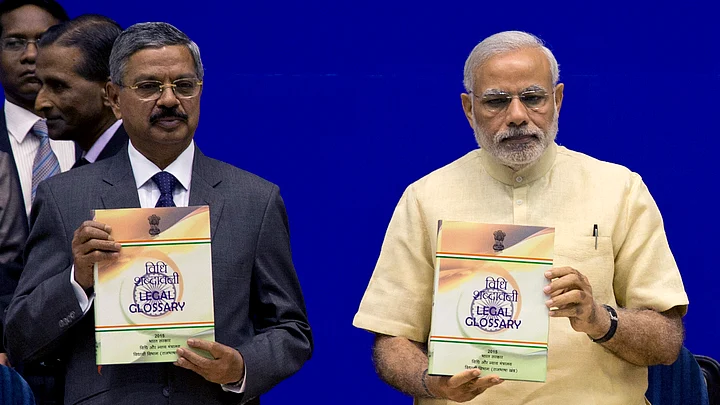The Supreme Court is likely to pronounce its judgement today on maintainability of petitions challenging the validity of a constitutional amendment and the NJAC Act, meant to replace the two-decade-old collegium system of judges appointing judges.
A three-judge bench of justices A R Dave, J Chelameswar and Madan B Lokur had reserved its judgement on March 24, after Attorney General (AG) Mukul Rohatgi, appearing for the Centre, wrapped up his rejoinder arguments saying that the pleas be dismissed as they were “premature” and “academic” in nature.
The apex court had said it could proceed on the merits of the matter only after deciding whether the petitions challenging the validity of the Constitutional Amendment Act and the National Judicial Appointments Commission (NJAC) Act were maintainable or not.
Those opposing the new law on the appointment of judges for higher judiciary has submitted that the issue should be referred to a Constitution Bench of five judges.
Referring to various case laws, the AG had argued that the power of Parliament to make law is “plenary” and hence, the methodology adopted by the legislature in clearing the law on the floor of the House cannot be “tested” by the court.
Rohtagi had made the submission after noted jurists like F S Nariman and Anil Divan and some others had contended that as per constitutional scheme, the National Judicial Appointments Commission (NJAC) Act should not have been passed ahead of enabling constitutional amendment.
“Where was the authority to pass the NJAC Act,” Nariman had asked and added that the Act should have been passed after the constitutional amendment.
However, Rohatgi submitted that “Only end product can be examined by the courts and it is irrelevant that this Act was passed earlier and that Act was passed later.” “Only an Act, after notification, can be tested in the court of law and not the procedures adopted by the Parliament,” the Attorney General had submitted.
The Supreme Court Advocates on Record Association (SCAORA) and Bar Association of India (BAI), represented by Nariman and Anil Divan respectively, had opposed the two Acts and sought that direction be passed to maintain status quo, saying the entire process would otherwise become irreversible.
However, the Supreme Court Bar Association (SCBA) had strongly favoured the government on laws on appointment of judges in higher judiciary, saying there has been “unanimity” that the present mechanism has “serious pitfalls”.
“There is unanimity in the view that there are serious pitfalls in the collegium system,” SCBA president and senior advocate Dushyant Dave had submitted.
He had said that the pleas, challenging the validity of the Constitutional Amendment Act and the NJAC Act, were “premature” as they have not been notified.
“You cannot test a law on the premise that it may be abused in future,” Dave had told the bench.
